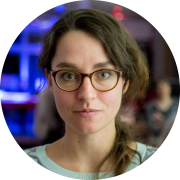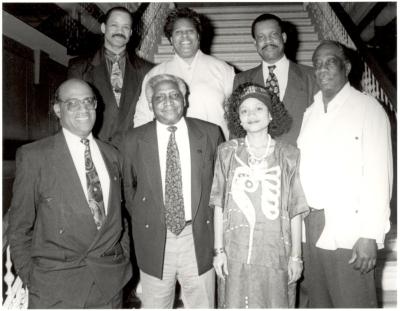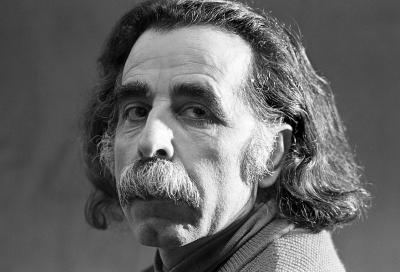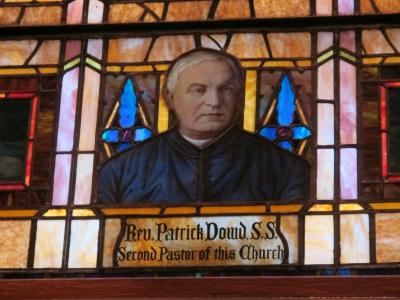Actor, radio host at Radio-Canada International, co-founder of the Festival international de cinéma Vues d’Afrique, and more, Ousseynou Diop was a major force in establishing a bridge between Montréal and the African continent.
Ousseynou Diop
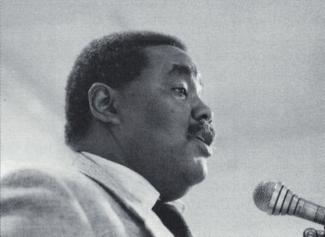
Ousseynou Diop, a man who helped shape the culture and journalism landscape in Québec, passed away on February 10, 2011. Diop wore many hats during his career. He was passionate about film and music, he worked as an actor, and as a radio host and journalist at Radio-Canada, and he co-founded the Festival international de cinéma Vues d’Afrique and the Canada-Africa Chamber of Business (formerly the Chambre africaine du commerce et de l’industrie du Canada).
Diop was born in 1941 on a boat, somewhere between France and the African continent. He grew up in Guinea, then in Senegal as of age six. As an adult he hosted a radio show for young people on Radio Sénégal, under the name Bob Yves. In 1972, he took cinema by storm, starring in Touki Bouki, a film about two outliers from Dakar who dream of going to Paris. The movie went on to win the International Critics Award at the 1973 Cannes Film Festival; but despite international success, at home in Senegal, Diop’s lead role as a gay man proved highly controversial.
Hitting the ground running
Ousseynou Diop
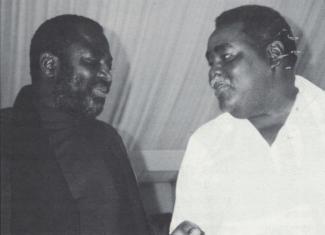
Diop arrived in Montréal in 1973. Soon after, he was cast as Étienne Latour in a Québec TV series called La p’tite semaine. A year later, Radio-Canada International hired him to report on Superfrancofête (Festival international de la jeunesse francophone). Working in radio allowed Diop to learn about Québec and Canada, as well as share African culture with- a Canadian audience. In 1977, he hosted a series of interviews as part of the World Festival of Negro Arts (now known as FESMAN); the series was organized by the magazine Présence africaine. To fill what he considered an astounding gap in international news, which was covering only Europe and the Cold War at the time, Diop launched and headed an Africa section at Radio-Canada International.
Ousseynou Diop brought Montrealers a wide and diverse range of news from Africa, facilitating cultural exchange. In the 1970s, he also initiated a first Senegalese-Québecois musical collaboration with the album Le blé et le mil by Toubabou. Diop’s contribution to raising the profile of films from Africa and Creole nations was founding the Montréal film festival Vues d’Afrique. The idea sparked during a press conference for the Montréal World Film Festival, when founder and president Serge Losique was asked why African cinema was absent from the programming, and he responded that African films were non-existent. Indignant, Diop partnered with Gérard Le Chêne in 1985 to start Les journées du cinéma africain au Québec, the first incarnation of Vues d’Afrique. After a few years, the festival connected with some of the world’s most renowned directors. Through Vues d’Afrique, Diop also introduced African countries to Montréal and Québec.
A space for cultural exchange
Ousseynou Diop - 1985
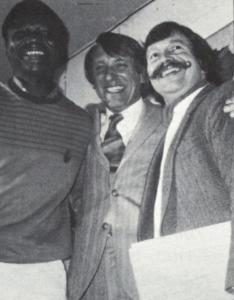
Vues d’Afrique was an instant success: the first screening sold out. Diop quickly decided to add a Creole component to the programming. Since 1985, the festival has created a unique space to bring to light important issues, such as the place of female directors from the South, the genocide of the Tutsis in Rwanda, and the centennial of Haiti’s independence. As of the festival’s first year, Vues d’Afrique partnered with the Panafrican Film and Television Festival of Ouagadougou in Burkina Faso—a hub for cinema across African. The festival’s Conseil des festivals jumelés, based in Montréal, has partnered with other organizations as well, resulting in shared projects. These partnerships have facilitated quality cinema year after year and continue to showcase the vibrant multiplicity of African film.
As an ambassador of African film, Diop also hosted a series of 13 shows on African cinema, produced by Gérard Le Chêne for InformAction de Montréal and aired on the French-language network TV5. Diop also continued with his Radio-Canada show during this time and was active in supporting the fight to keep the broadcaster up and running in 1991. All throughout, he had an awareness of the importance of the African diaspora investing in Montréal, and he created the Africa-Canada Chamber of Business.
1995_ousseynoudiop_prixvuesdafrique.jpg
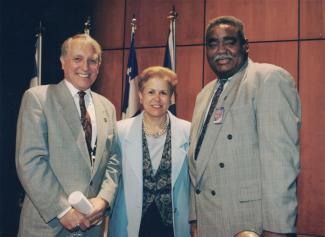
Today, Ousseynou Diop’s legacy lives on in his reporting, movies, and in Vues d’Afrique. Diop also opened the door for well-known personalities like Boucar Diouf and other African artists, journalists, and investors. When you ask his long-time friend Bara Mbengue how Diop was able to achieve so much since the 1970s, Mbengue recalls early meetings and the openness of Radio-Canada, but mostly Diop’s tremendous talent and the energy he was capable of pouring into the causes close to his heart.
Thank you to Gérard Le Chêne, President and Director General of Vues d’Afrique, for contributing to the research required for this article and for validating the information.
ANGLADE, Georges. Cartes sur table, Vol. 1, Itinéraires et raccourcis : cinq ans de jalons, 1977-1981, Port-au-Prince, Éditions Henri Deschamps; Montréal, Études et recherches critiques d’espace, 1990, p. 1-200.
GAGNÉ, Caroline. La construction discursive de l’identité en contexte migratoire, une étude de cas : « Les enfants de la Loi 101 », Mémoire (M.A.), Université Laval, 2010, 132 p. [En ligne]. [www.theses.ulaval.ca/2010/27597/27597.pdf] (Consulté le 23 juillet 2012).
KAREGEYA, Aloys. Caractéristiques sociodémographiques et évolution de l’immigration africaine au Québec et au Canada, de 1966 à 1996, Mémoire de maîtrise (M.A.), Université de Montréal, 2000.
NDOYE, Amadou. Les immigrants sénégalais au Québec, Paris, éditions L’Harmattan, 2003.
DIOP, Ousseynou et Danièle CHARLES. « Entretien avec Sembène Ousmane », [En ligne], Ciné-Bulles, Vol. 12, no 4, automne 1993, p. 28-3. [https://www.erudit.org/fr/revues/cb/1993-v12-n4-cb1125625/33946ac/].
DIOUF, Mamadou. « Géraldine Le Chêne : Elle incarne 30 ans de succès de Vues d’Afrique et elle est magnifique », Le Montréal africain, no 105, 15-30 avril 2014.
LAURENCE, Jean Christophe. « Un géant du Montréal africain s’éteint », [En ligne], La Presse, 2 avril 2011. [http://www.lapresse.ca/actualites/montreal/201104/02/01-4385844-un-geant-du-montreal-africain-seteint.php].
TREMBLAY, Odile. « Les vingt ans de Vues d’Afrique », [En ligne], Le Devoir, 10 avril 2004. [http://www.ledevoir.com/culture/cinema/51886/cinema-les-vingt-ans-de-vues-d-afrique].
- ZEHLER, Estelle. « Aux accents du Sud. Vues d’Afrique projette les images d’un cinéma pluriel », [En ligne], Le Devoir, 10 mars 2005. [http://www.ledevoir.com/culture/actualites-culturelles/77321/cinema-aux-accents-du-sud].
Entrevue avec Bara Mbengue (ami d’Ousseynou Diop depuis l’arrivée de ce dernier à Montréal en 1973), faite par Neal Santamaria dans le restaurant sénégalais Chez Khady le 7 avril 2016.
